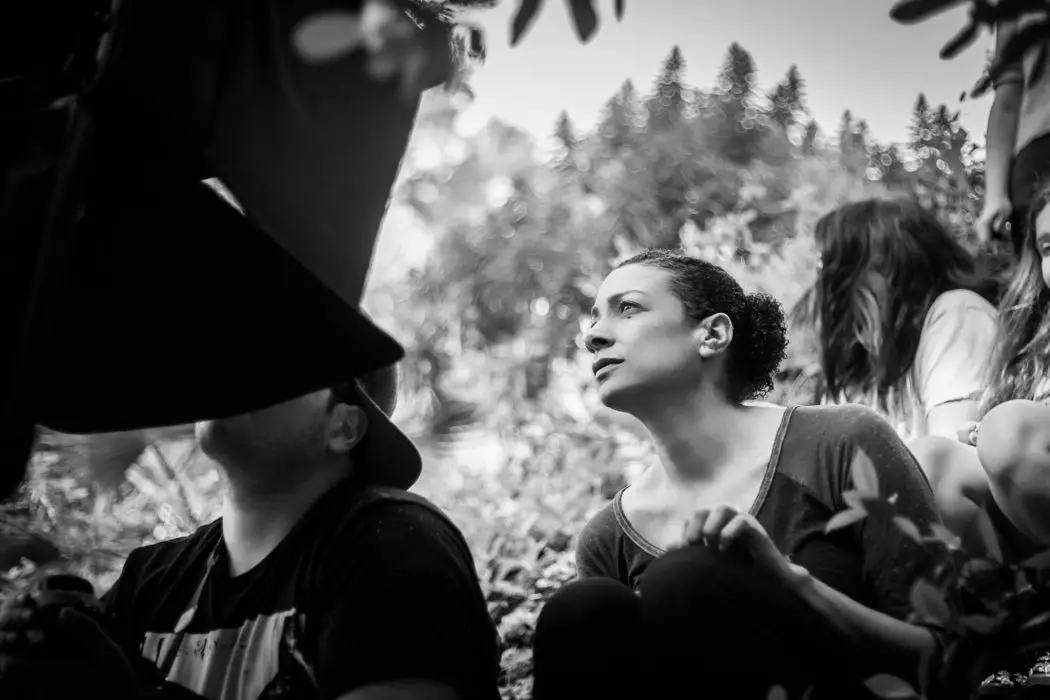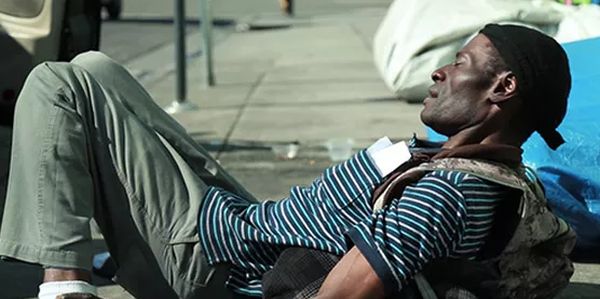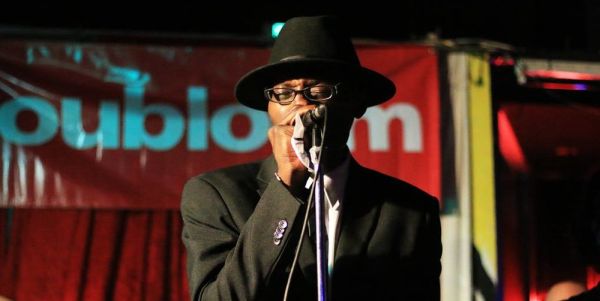Homelessness Is A Complicated Issue – Interview With Delila Vallot, Director Of MIGHTY GROUND

Manon de Reeper is the founder and CEO of Film…
Yesterday afternoon, I had the great pleasure of speaking with Delila Vallot, the director of the documentarymy review of the film and whether I would be interested in chatting with her. We met up at the Los Angeles Film Festival HQ, the ArcLight Theater in Culver City.
My Response to Mighty Ground
My initial response to the film was incredibly heated: I care deeply about the subject of homelessness. Homelessness should not be happening to begin with, it shouldn’t be happening on the scale it’s happening in the United States and Los Angeles particularly, especially in places where people live in giant mansions with a family of four, and drive cars that cost more than what some of the poorest on the streets see in their entire lives.

It’s horrific, and a damn shame. I don’t know how people can look themselves in the mirror, frankly. But that may be the socialist treehugger Dutch person within me speaking, and that showed in my review. Anyone who says you can review a film objectively is nuts; every audience member, including critics, takes their own perspectives and experiences to any film they see. Reviews are always subjective, and this was the perspective I brought with me.
Furthermore, Mighty Ground upset me because I felt like the film presented a story of the white saviour; Ronald Troy Collins was taken off the streets by a group of white people who had the means to make him famous – Ronald is an incredibly talented singer. Not every homeless person is so lucky to be that talented. It doesn’t fix anything in the long run, except for Ronald.
Adding Nuance To The Story
I’m very grateful that Delila Vallot wanted to speak with me about the topic; she too cares deeply about people and the condition of the homeless, and in fact, we absolutely see eye-to-eye about it. Even though I may not agree with how race relations are portrayed in Mighty Ground and questioned the motives of some of the people involved. It was something Delila, a woman with a black and a white parent herself, was acutely aware of while filming and tried to do something about, but the story just didn’t evolve that way, and you are very limited as a documentary maker in the amount of influence you have over what’s happening. We do agree strongly about the issue of homelessness and that it needs to change, which I think is most important.

According to Delila, it was never their intention to push an image of the great white saviour, or of people relieving their white guilt – this is just how the story unfolded. And perhaps white guilt was involved – does that necessarily make it a bad thing? These people were the ones with the means and the willingness to help Ronald. They were touched by him and his story, and are still friends. Should this strictly remain separated by race? Should black people only be allowed to help black people, and vice versa? It should be more nuanced than that. We both concluded we don’t have the answers and that it’s a very difficult world we live in.
Treating Each Other With Love And Kindness
The main take-away from my conversation with Delila is that she primarily wants to portray kindness and love that people can have for each other, no matter the colour of their skin. Ronald now has a roof over his head as well as a job. I still think it’s the responsibility of a government to keep people off the streets, and not of random passersby who only out of the kindness of their heart or whatever other reasons want to help homeless people, but it’s a start. If we’d all be a bit kinder to each other, share what we have and treat each other with respect, the world, or at least the United States, wouldn’t be in such a grim state.
In the mean time, there are still a ton of homeless people on Skid Row, which is becoming increasingly gentrified, and throughout the rest of the city. Delila hopes to spread awareness of the situation there and aims to humanise the homeless. They have mothers and daughters, they are sisters and aunts. They could have been singers like Ronald, or scientists, or nurses, if they’d had the chance. Delila and her team will be working with charities that focus on helping the homeless going forward.
Delila Vallot is a hard-working and ambitious director originally from Hollywood, California. Her background is in dancing, having worked with well-known choreographers like Vince Patterson, Jaime Rogers and Debbie Allen. She premiered her first documentary, Can You Dig This at Los Angeles Film Festival in 2015, and Mighty Ground at LAFF this year. She wants to move into narrative and TV and I think we’ll hear a lot more from her in the future! I’m keeping an eye out for her work, for sure.
It was a true pleasure to speak with Delila and get to know her, and experience how genuinely passionate she is about this subject. I wish her all the best of luck with Mighty Ground, and of course, Ronald too, in his career and recovery.
Mighty Ground had its Los Angeles Film Festival premiere on Monday June 19 at 6:45 PM at ArcLight Santa Monica.
Does content like this matter to you?
Become a Member and support film journalism. Unlock access to all of Film Inquiry`s great articles. Join a community of like-minded readers who are passionate about cinema - get access to our private members Network, give back to independent filmmakers, and more.
Manon de Reeper is the founder and CEO of Film Inquiry, and a screenwriter/producer. Her directorial debut, a horror short film, is forthcoming in 2021.













